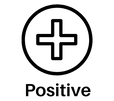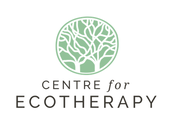|
A magical day in the woods for a leadership forum of 50 leaders from POhWER, an advocacy charity. The aim was to connect the executive team, management team and team leads with each other, and to work together on the organisation’s challenges for the year ahead. Client: POhWER
Location: Woodland, South London Group size: 50 Who they are POhWER is a charity set up to effect change by providing advice, support and advocacy to people who experience disability, vulnerability, distress and social exclusion. Their context and challenges Prior to working with us, there had been a lot of change. People had strong feelings about it and in some parts of the organisation there had been resistance to the change programme, which had led to a polarised culture and tension among certain groups. A group of staff were not exercising agency and were pushing decisions and solutions upwards. This meant that people were not working together to address challenges. In addition, the cost of living crisis was putting pressure on some staff and that, combined with the continual drip of bad news in the world, was exacerbating mental health issues. POhWER came to us to help them start to change mindsets and culture. An offsite retreat based at a yurt village, for a fast growing charity working in the field of sustainability and the built environment Client: UKGBC - a charity working in the built environment
Location: Yurt Village, West Sussex Group size: 26 Who they are The UK Green Building Council is a membership organisation that aims to radically transform the built environment. This is a growing sector: there is a lot of work to do, and the team was growing. Their context UKGBC’s team had been through a very busy time and were feeling stretched. Plus there had been some instability - several new people had joined, and several key people had left, and the team had been challenged by this. There was a feeling that screen-based remote and hybrid working was creating barriers and as a result the organisation was missing out on creative conversations, people were not collaborating in the way they once were, and some people felt frustrated and that they couldn’t bring their whole selves to work. There was also an issue with a few people being quiet and not speaking up in meetings. Their challenge “How can we support each other, feel connected, bring our true selves to work and be motivated/fulfilled?" The aims and objectives UKGBC wanted their team to reconnect, regroup and develop as a team, and be reminded that their organisation was a great place to work. They wanted a meaningful programme to give them:
Wondering how to get your team out of a stuck pattern or how to boost collaboration and move everyone forward towards a goal? Try using Forcefield Analysis, a framework for looking at the factors that are driving or hindering you. We use it in the woods with our clients. It'll help you make faster progress. The other day we were working with a research group from a London university. The leader was frustrated that the same small core bunch of people came to meetings and away days, while the rest of the research group - about 25 people - didn’t show up or engage in any activities.
She came to us to try something different, to catalyse a more connected and engaged group. She wanted people to see the group as a real resource. And she didn’t want to be the only person driving things. We decided to experiment with a new (to us) development tool in the outdoor team day we ran for them. Forcefield Analysis was created by psychologist Kurt Lewin in the 1940s, it is a process for working out what’s driving your team and what’s holding you all back - whether on reaching a goal, or working together better. The theory is that you make faster progress by weakening and removing the restraining forces than by trying to do more driving things (especially when everyone is already overloaded.) Client: Sussex Recovery College
Location: Self-contained nature site, near Brighton Group Size: 20 Who they are: Sussex Recovery College offer educational courses designed to promote self-management of mental health and recovery. The courses are delivered by a combination of professional and peer trainers. Why a strategy away day on legacy in the wild? The peer trainers have tended to work independently, and didn’t know others from different regions very well. The college wanted to bring the peer trainers together to celebrate achievements, and to look at how they work together, using nature as an inspiration for the learning. Their challenges: “How do we generate a stronger, more integrated team?” “What do we want our legacy to be?“ How we helped a remote sales team to communicate better In the woods today, we worked with nature to help a remote sales team from a global medical supplies company answer a pressing question: "How do we want to communicate with each other?" Client: Global Medical Supplies Co Location: Woodland, West Sussex Group size: 7 Who they are
This global medical technology company provide innovative healthcare and medical solutions. The south east region team is pretty new and has grown from two to seven people in less than a year. The product they sell is complex and the market is competitive. Team members come from diverse backgrounds, and all work remotely, so they don't spend much time together, and don't contact each other often. Their challenge: "How do we want to communicate with each other so that we can work together better?"
Think Productive work on communication, culture and strategy at a ninja away day workshop around the fire.
Who are they?
Founded by best-selling author Graham Allcott (How to be a Productivity Ninja), Think Productive help transform the productivity and wellbeing of leading organisations around the world, through practical, human and straight to the point time management and productivity training and workshops. Think Productive are a close team, a mix of trainers (called Productivity Ninjas) and head office staff. The Academy of Medical Sciences delve into the future of medical research at an innovation away day workshop around the fire
All pictures: Academy of Medical Sciences
Who are they?
The Academy of Medical Sciences is a fellowship of 1,200 of the UK’s best medical science researchers working at universities and hospitals across the UK, with a mission to improve health through research.
Looking at the future of medicine
It’s March 2018, and the Academy are running a series of Horizon Scanning workshops across the UK to look at the future of medicine over the next 30 years. The workshops are bringing the Academy’s fellows and grant awardees together with curious creatives from various research disciplines, to explore what areas of medical research and innovation will have the greatest impact on society by 2048 (when the Academy turns 50). The Academy have asked School of the Wild to host the Brighton workshop - the idea is to hold it away from the usual world of universities and hospitals, in an environment not normally connected to research, to inspire attendees to think more broadly about the future. Futures consultant Oliver Grant is leading the sessions with support from Academy of Medical Science (AMS) staff, and writers and graphic visualisers who record the conversations. This is what happened when the team from digital agency ribot came together in the woods of East Sussex for an outdoors team away day programme |
Author & CuratorNigel Berman is the founder of School of the Wild. Archives
March 2024
|
Leaders |
About Us
Support |
|

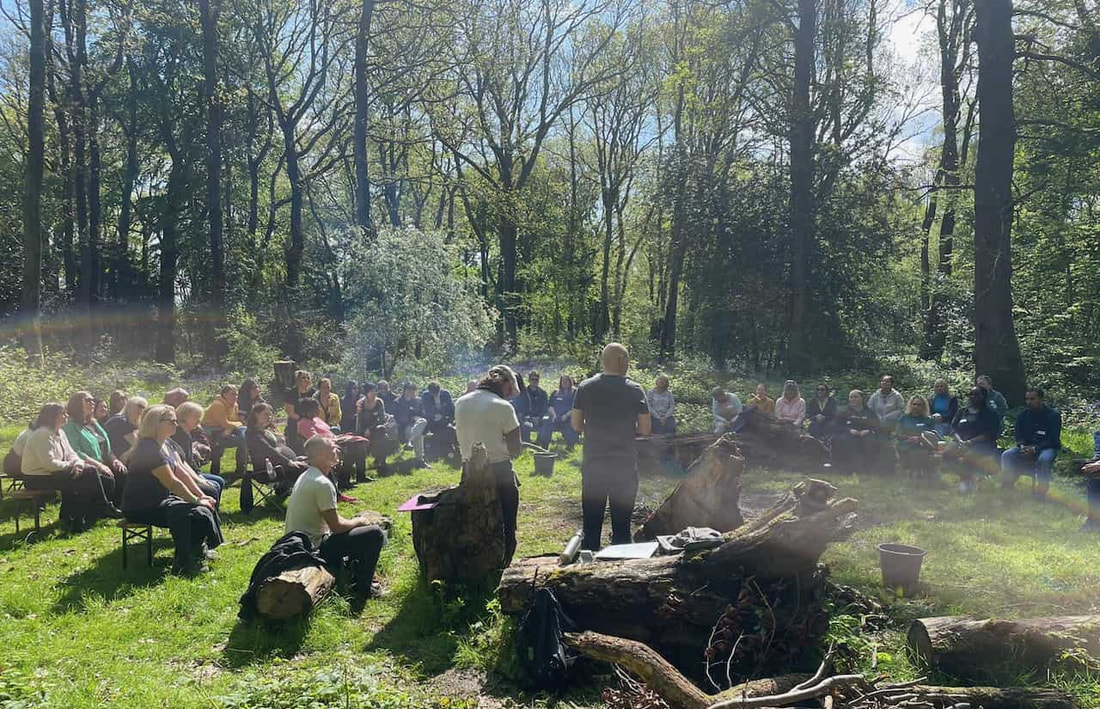
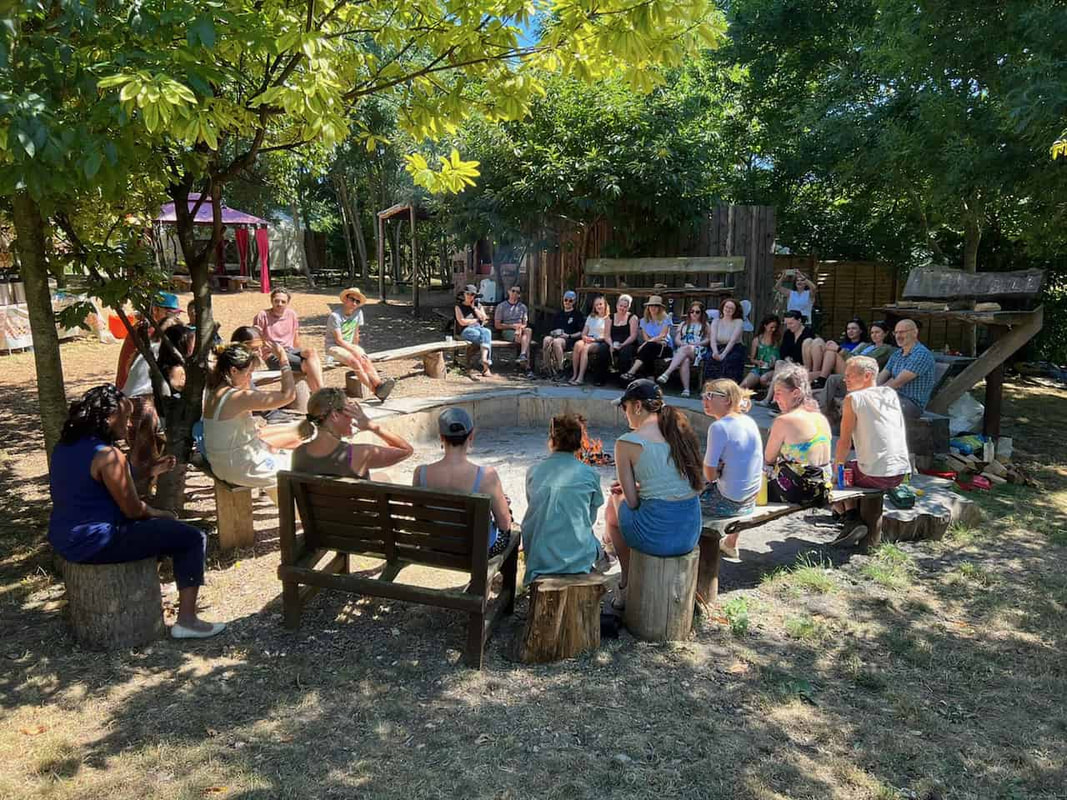
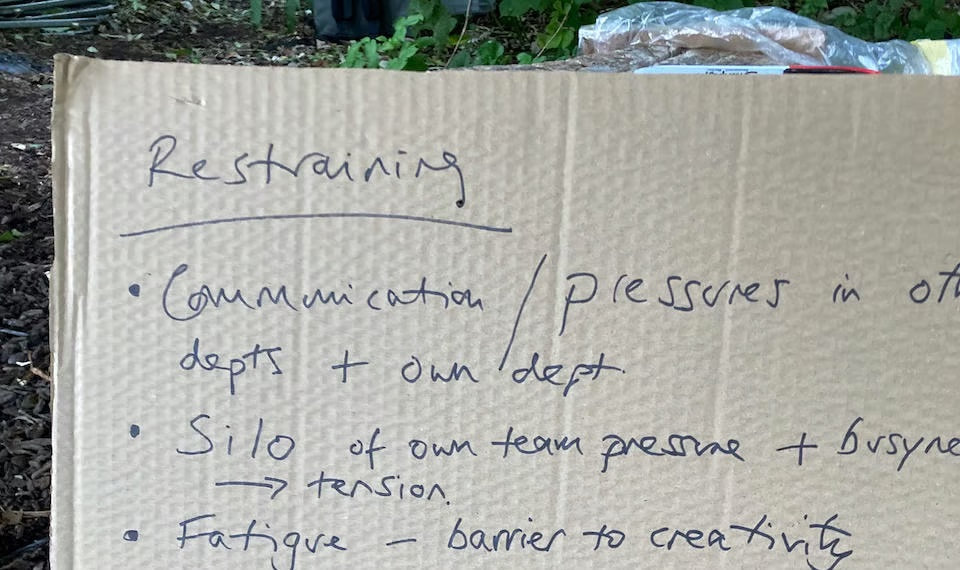
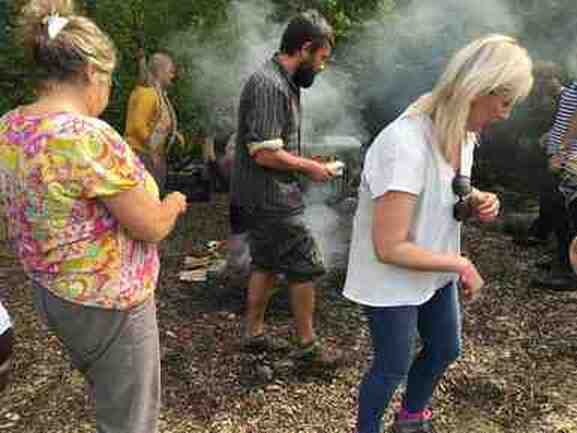
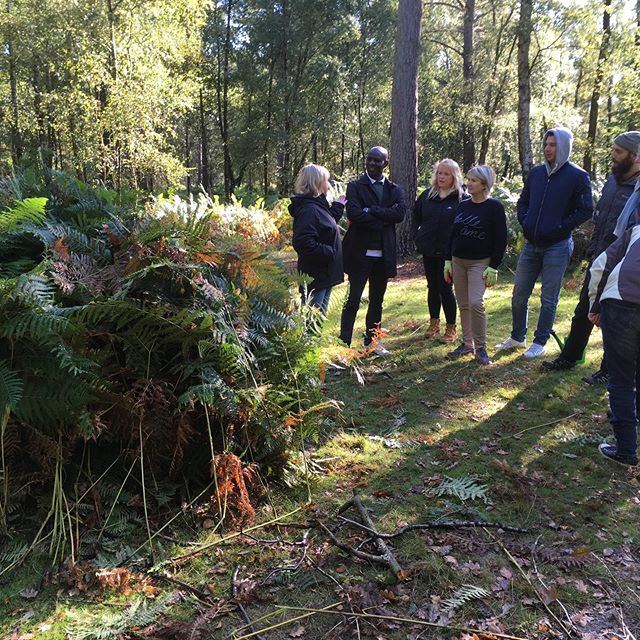
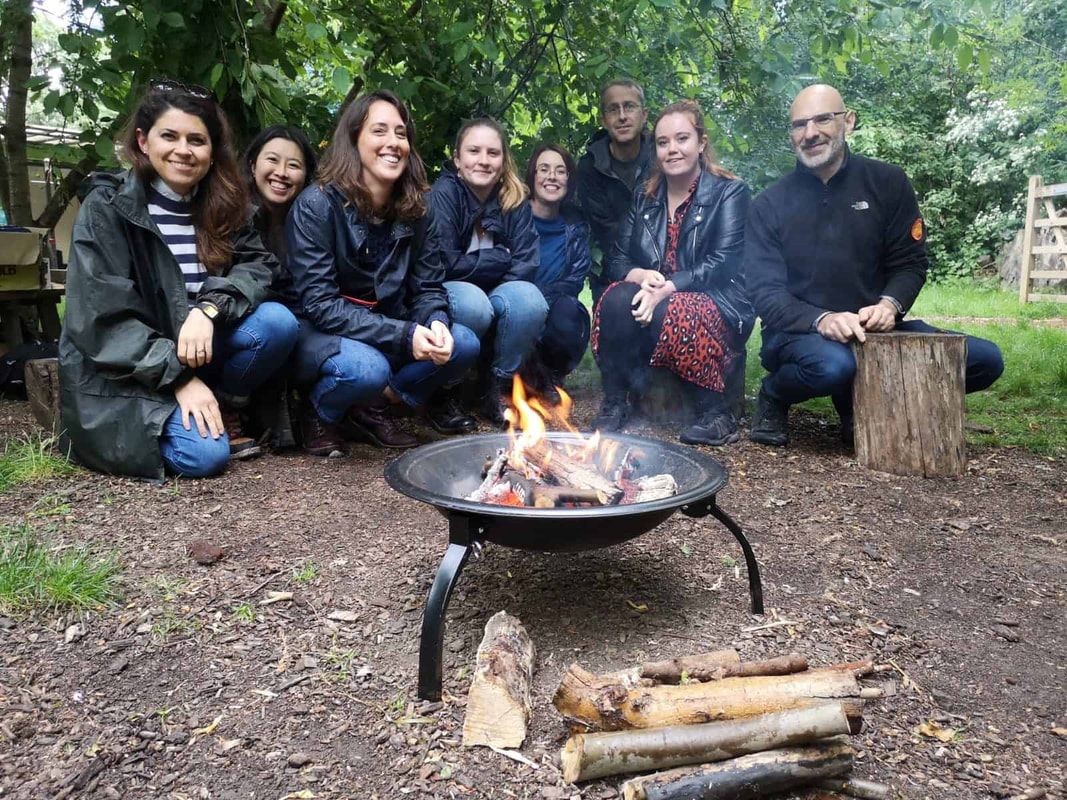
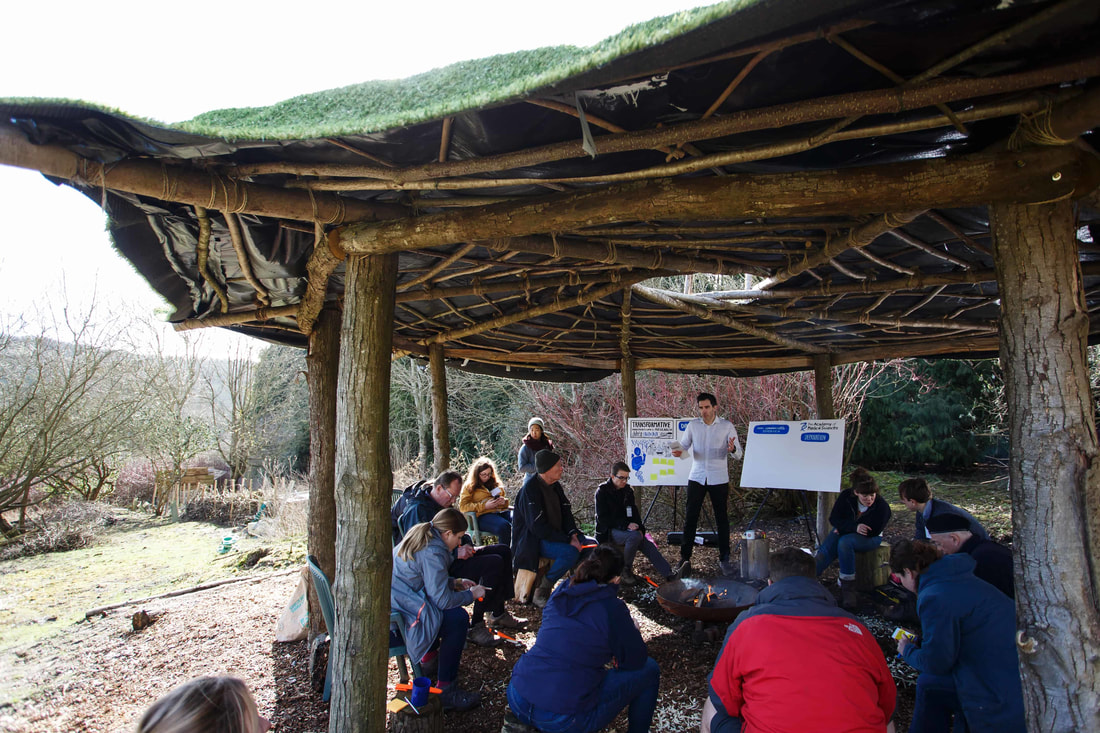
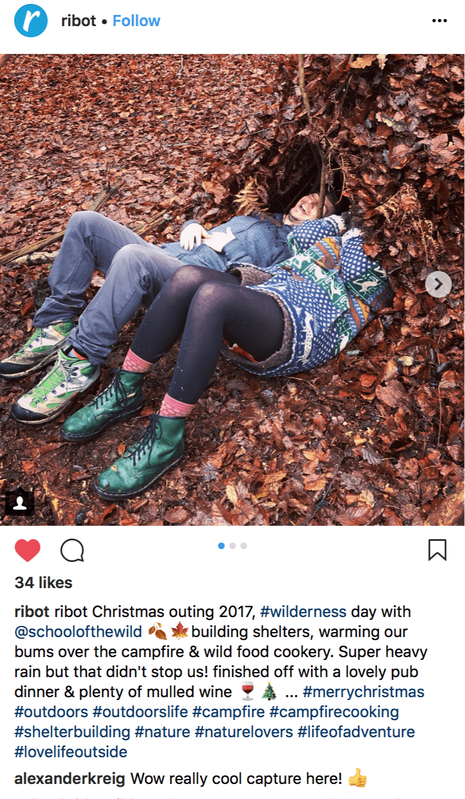
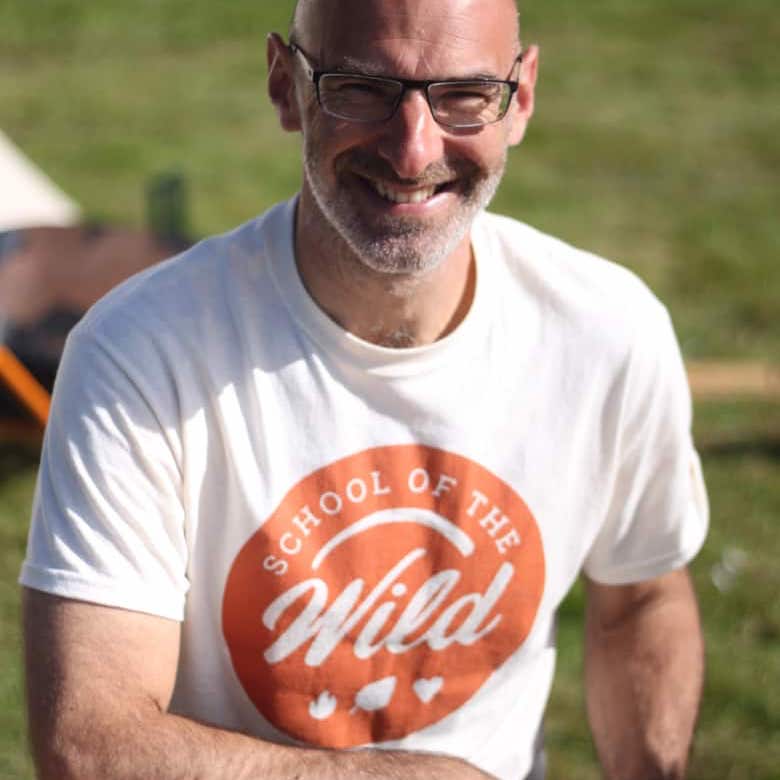
 RSS Feed
RSS Feed
